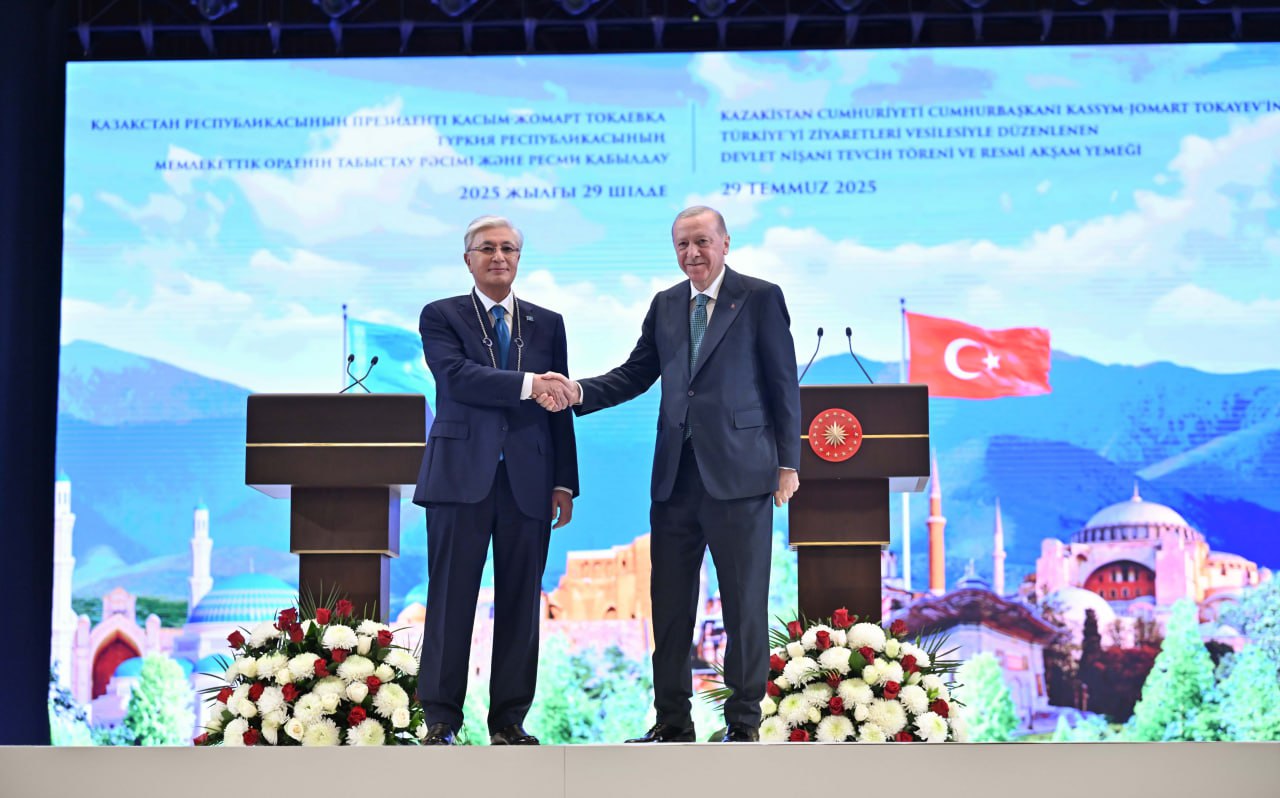The official visit of President Kassym-Jomart Tokayev to Türkiye holds multidimensional and strategic significance that extends far beyond diplomatic protocol. The visit stands out as part of an ongoing process of transformation, particularly marked by deepening regional alliances in the fields of science, energy, and logistics. Invited by President Recep Tayyip Erdoğan, Tokayev co-chaired the fifth meeting of the Türkiye-Kazakhstan Strategic Cooperation Council. As a result of the summit, 20 bilateral agreements were signed, encompassing frameworks of regional integration mining, energy, transportation and education.
Energy diplomacy

Ahmet SAĞLAM.
One of the most notable outcomes of the visit was the establishment of cooperation mechanisms aimed at transporting Kazakh oil to global markets via Türkiye. According to Tokayev, 1.4 million tons of Kazakh oil are currently transported annually through the Baku–Tbilisi–Ceyhan pipeline. Under the newly signed contract, the nations seek to increase this volume. This development not only strengthens Türkiye’s ambition to become a regional energy hub but also holds critical importance for Kazakhstan’s strategy to diversify export routes and secure access to safe ports. The expressed intent of Turkish Petroleum Corporation (TPAO) to operate in Kazakhstan signals that the collaboration may extend beyond transport into production processes as well.
Kazakhstan’s reserves of rare earth elements and strategic minerals are of considerable value to both European and Asian economies prioritizing green energy transitions. In this context, the agreements signed in mining may hold a new phase – one that requires not only commercial but also joint technological and scientific research and development.
Strategic role of transport
The development and activation of the Trans-Caspian International Transport Route, commonly referred to as the Middle Corridor, is also of strategic importance. According to data shared by Tokayev, approximately 85% of road freight transported between China and Europe passes through Kazakhstan. This positions Kazakhstan as a backbone of the region’s logistics infrastructure. Türkiye’s central role in the Middle Corridor makes it a decisive actor in the route’s integration with Europe. In this regard, Kazakhstan’s efforts to modernize its rail and road infrastructure, alongside its revival of maritime transport on the Caspian Sea, when combined with Türkiye’s port capacity and transportation infrastructure, present significant synergistic potential.
Education and academic cooperation
Beyond its economic dimension, the visit also drew attention to scientific and cultural collaboration. Joint initiatives such as Gazi University’s planned establishment of a branch within the South Kazakhstan University can contribute to aligning the Turkish higher education model with Kazakhstan’s ongoing education reforms.
The Turkish Maarif Foundation’s new school initiatives in Kazakhstan signify a broadening and institutionalization of bilateral cooperation in education. These efforts may extend beyond student exchange programs to encompass joint research projects, health technologies, distance education systems, and academic mobility – laying the groundwork for a multifaceted partnership.
The growth of investments
Bilateral economic relations have gained significant momentum. The trade volume between the two countries has reached $5 billion in 2024. Kazakh investments in Türkiye reached approximately $1.5 billion, while Turkish investments in Kazakhstan neared $5 billion. According to Tokayev, around 4,000 Turkish companies are operating in Kazakhstan, having undertaken projects worth a total of $6 billion. The involvement of the companies in energy, construction, agriculture, industry, infrastructure and healthcare shows Türkiye’s capacity to transfer its development experience to the region.
A multi-layered partnership
The comprehensive cooperation platform established along the sectors of energy, transportation, education, and science during the Tokayev-Erdoğan summit could, if institutionalized within a strategic framework, significantly contribute to realizing the two countries’ shared goal of reaching a bilateral trade volume of $15 billion.
As part of the visit, Erdoğan awarded Tokayev the State Order of Türkiye – an act that symbolizes the deepening of bilateral relations not merely on the basis of strategic interests but also through a shared sense of fraternal affinity. This gesture adds a distinct and positive momentum to the partnership.
The author is an independent political expert and author based in Ankara, Türkiye.
